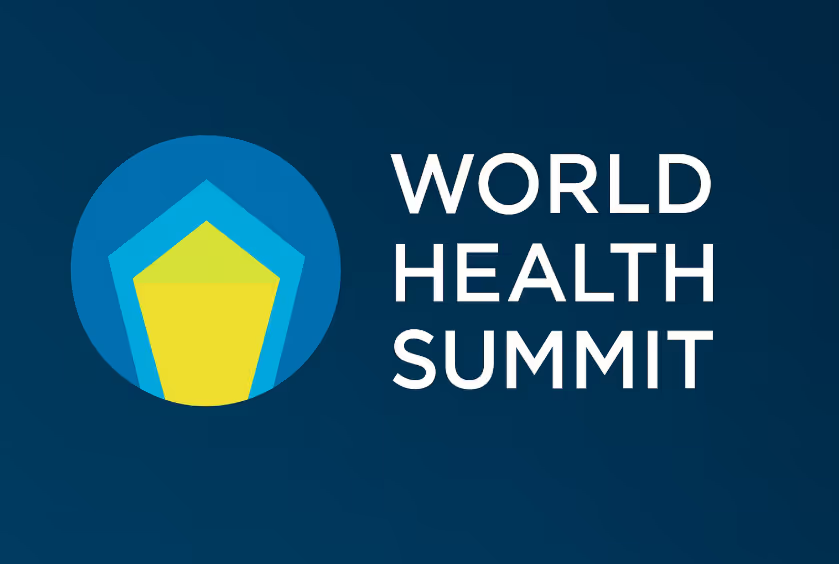Stay informed with our newsletter.
.webp)

.webp)

The World Health Summit 2025, taking place from October 12–15 in Berlin, brings together global health leaders to address the theme “Health in a Fragmenting World.” The summit will focus on strengthening pandemic preparedness, tackling the growing health impacts of climate change, and promoting equitable access to healthcare worldwide. By fostering international collaboration, WHS 2025 aims to rebuild global solidarity and ensure health remains a unifying priority amid rising global divisions.

As the world grapples with political divides, climate disasters, and economic volatility, one of the few universal concerns that transcends borders is health. The World Health Summit (WHS) 2025, scheduled to take place from October 12 to 15 in Berlin, comes at a critical time. This year’s theme, “Health in a Fragmenting World,” captures the urgency of rebuilding cooperation in a world increasingly marked by fragmentation, geopolitical, economic, and social.
Founded in 2009, the World Health Summit has evolved into one of the most influential international gatherings on global health policy. It brings together leaders from government, academia, civil society, and the private sector to shape the global health agenda. The 2025 edition is expected to host over 3,000 participants in person and thousands more online, including representatives from the World Health Organization (WHO), the European Commission, and leading global health institutions.
The Summit aims to confront the complex challenges that define global health today from preparing for future pandemics to addressing the health impacts of climate change and ensuring equitable access to care across nations.
The theme reflects a sobering reality: the global health landscape is increasingly fragmented. Political polarization, conflicts, and widening inequality have made international cooperation more difficult at a time when it’s most needed.
Dr. Axel Rainer, a WHS 2025 spokesperson, notes that “fragmentation undermines the very systems designed to protect us. Health cannot exist in isolation; it is intertwined with climate, economy, and peace.” The Summit therefore emphasizes collaboration across borders, a call to revive multilateralism in a world that often seems to be moving in the opposite direction.
This fragmentation isn’t only political. Economic inequality means that while high-income countries make progress in medical technology and research, low- and middle-income nations continue to struggle with access to basic care, essential medicines, and trained health professionals. The Summit aims to bridge this divide through inclusive policymaking, financing models, and equitable innovation sharing.
If COVID-19 taught the world anything, it’s that preparedness saves lives and that global systems were nowhere near ready for a pandemic of that scale. WHS 2025 will take a hard look at how the international community can prevent another global health crisis from spiraling out of control.
Key discussions will revolve around:
The WHO and the World Bank are expected to present progress on the Pandemic Fund, established in 2022, which supports low-income countries in improving preparedness infrastructure. Experts also hope to introduce frameworks for integrating pandemic preparedness into national health systems, ensuring that readiness becomes a routine part of healthcare governance.
The link between climate and health has never been clearer. Rising global temperatures, extreme weather events, and environmental degradation are intensifying health risks from heat-related illnesses to respiratory diseases and the spread of infectious vectors like malaria and dengue.
WHS 2025 will spotlight the intersection of climate policy and public health, urging nations to treat health as a central pillar in climate action plans. Sessions will explore:
Notably, this year’s Summit will feature the Lancet Countdown 2025 Report on Climate and Health, highlighting the human impact of environmental change and the urgent need for integrated responses.
The third major pillar of WHS 2025 is global access, ensuring that everyone, regardless of geography or income, can receive essential health services. Inequality in healthcare remains one of the biggest global challenges. According to the WHO, half the world’s population still lacks access to basic health services, while millions are pushed into poverty each year due to out-of-pocket health expenses.
The Summit will discuss actionable solutions to close these gaps:
A central message will be the need to treat healthcare as a public good, not a privilege. By fostering international cooperation, the Summit seeks to make equitable healthcare not just an aspiration but a shared global priority.
Technology will also take center stage at WHS 2025. From AI-driven diagnostics to digital epidemiology, innovation is reshaping healthcare delivery and policy design. Sessions on digital transformation in health will examine how emerging technologies can improve data accuracy, patient care, and system efficiency while maintaining ethical standards and privacy protection.
The Summit is expected to showcase several pioneering projects, including AI-based predictive models for outbreak tracking and blockchain systems for medical record transparency. However, panelists will stress that technology must complement not replace human expertise, compassion, and equitable policy frameworks.
The overarching message of WHS 2025 is simple yet powerful: health solidarity must overcome global fragmentation. In a world divided by politics, economics, and ideology, health can be a unifying force. Collaboration in science, policy, and humanitarian response is not only desirable but essential for humanity’s survival.
By addressing pandemic threats, tackling climate-related health risks, and pushing for universal healthcare access, the Summit hopes to set the tone for a more connected, resilient, and compassionate global health system.
As delegates convene in Berlin, the conversations at WHS 2025 will extend far beyond the conference halls. They represent a collective acknowledgment that the health of one is inseparable from the health of all and that the time to act, together, is now.
For questions or comments write to contactus@bostonbrandmedia.com
